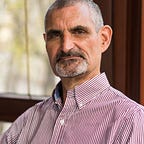Do You See What They See?
Here at the-Coaching Blog-run by Gerard O’Donovan, our aim is to constantly bring value to those seeking to improve their lives. Therefore we have a policy of publishing articles and materials by guest authors whom we value and appreciate. Today’s guest author is Reginald Jackson (USA).
Everyone looks at things in different ways. Where we come from, what we have been taught, etc. can have an effect on how we form opinions. The position we take can be considered a frame of reference, or context. Our context is the lens through which we see the world. This is typically based on three elements:
- Exposure
- Experience
- Expectation
These three elements also represent moments in time. Simply put, they are our past, our present, and our future. Looking at each of these elements independently may provide an objective perspective that helps us to better understand how we actually see the world. More importantly, this understanding can allow us to also better understand how the world sees us!
Exposure is the first element; the story of our life as we remember it. We form opinions about all the events we have witnessed or been a part of and relate to our past through the feelings and emotions associated with those events. Positive, negative, or otherwise, it becomes our reality. In this way, we are products of our environment”. Although some would argue, subconsciously or intentionally, we are somewhat shaped by our past. The relationships we have with our friends and family also contribute to the collection of memories we carry. Some more than others!
The second element consists of our experiences. They are shaped by the events that take place every day. Moment by moment, life takes place. And as it does, we are constantly collecting data and storing memories. Oddly enough, those memories may determine how we respond to certain events or issues. More times than not, those responses are automatic and don’t require much thought at all. In addition to the responses, we also have feelings, emotions, and body sensations. Therein lays the recipe for an experience.
Finally, the expectation is best described as the anticipation of a future outcome. Although the future is unknown, we tend to “forecast” certain events. Oddly enough, exposure and experience(s) may influence how we envision the future as it will be or (even better) should be. With this in mind, disappointment is often where expectation and reality meet. Of course, expectation isn’t categorically unpleasant. Expectation can also be a source of joy and excitement. The combination between the two is our context which leads to the essence of this discussion.
Imagine your every action is a display or evidence of your context. In other words, the way we see the world is the way others see us. This leads to the question; do you see what they see? If you had the ability to “watch” yourself as others do, would you be surprised, amused, disappointed, etc.? We are spectators of everyone’s life but our own. It is virtually impossible to assess how you act or react in the moment. Taking a slightly different approach will allow you to gain another vantage point. Being acutely aware of how exposure, experience, and expectation dictate your daily interactions will cause you to be better equipped and less likely to fall victim to life’s ups and downs.
If this has aroused your curiosity and you’d like to learn more about shifting your context to one of empowerment and decisiveness, stay tuned for Part 2.
About Reginald Jackson
As a Personal and Business Coach, he works with individuals, as well as groups, inspiring them to move outside their comfort zone and realize their greatness. His journey up to this point is interesting and quite diverse. Having served in the Marine Corps for more than twenty years, he offers a unique blend of leadership, wisdom, and compassion. Over the span of his career, he trained, counseled, and mentored hundreds of Marines. It was during that time he developed the insight and awareness that makes him such a powerful Coach. Since retiring from the Corps in 2007, he has held leadership positions in the IT industry, to include consulting and project management. Working with others and seeing “the light come on” is especially rewarding.
Read more here and don’t forget to subscribe to get free coaching reports to my coaching blog site: http://www.coaching-blog.com/do-you-see-what-they-see/
Please visit our site and subscribe to get a free edition of our coaching magazine: http://www.international-coaching-news.net/
